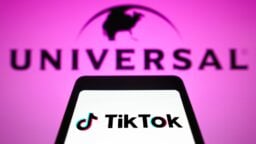In November last year, at a web summit in Dublin, U2 frontman Bono appeared to savage the NDA culture that often sullies artists’ relationships with their labels when it comes to streaming services.
When creatives don’t know what rightful streaming royalties they are owed from their record companies – or when they are owed them – Bono suggested, the industry cannot ever hope to have a healthy relationship with its performers.
““The real enemy is not between digital downloads or streaming, the real enemy, the real fight is between opacity and transparency,” he said.
“The music business has historically involved itself in quite considerable deceit… but if we change that bit, and people can actually see how many times they’re being played, where they’re being played, get access to information on the people who are listening to them, get paid direct debit… I think those payments will add up to something, as the world gets more transparent.”
This improvement in transparency is exactly what Bono now says Universal Music is developing for its artists, in a project driven by the UK company with the backing of worldwide boss Lucian Grainge.
“A Universal artist will be able to find out weekly, maybe even daily, on their cell phones, how many plays they’ve had and where in the world they’ve had them; also they can be direct-credited the payment.”
Bono
In his New Year blog on U2.com, Bono first writes of his concern over the percentage of digital music revenues being given to songwriters: “Some say musicians should be pleased with new ways to promote live concerts but I remind people that Cole Porter didn’t play live shows… Songwriters are getting a poor deal right now. ”
He then gives away a little insight into new technology being offered by UMG to its artists, which not only allows them to see their streaming royalty payments in real-time, but also be ‘direct credited the payment’.
“The reason I respect for-fee services like Spotify is that they are slowly turning people who are used to getting their music for-FREE, into paying ten dollars a month for a subscription model,” he writes.
“These payments don’t add up to replacement for income from physical or digital sales at the moment – but I think they can if everyone sits down – record companies, artists and digital services – to figure out a fairer way of doing business.
“I’m proud of Universal group, not least because Lucian Grainge took a big risk with our Apple [giveaway] release, but David Joseph, CEO of the UK, encouraged by his boss, is beta-testing a fresh approach to transparency …
“A Universal artist will be able to find out weekly, maybe even daily, on their cell phones, how many plays they’ve had and where in the world they’ve had them; also they can be direct-credited the payment.”
This is likely a reference to what the Wall Street Journal, in late 2014, called “Universal’s secretive but highly successful Artist Portal” that was “developed five years ago by interns — now full-time employees” and which “takes a fine-tooth comb through tons of data to better determine how, why, where and when an artist will be most successful”.
It noted that information about audience behaviour on social media, as well as ticketing, airplay and streams could be “mined, scraped and presented in real time, allowing Universal, its subsidiary labels and even the bands themselves to capitalise on a wave of popularity”.
As well as analysing data to help executives make pinpoint marketing decisions, though, Bono suggests that the Portal is also capable of wiring cash to artists who are owed it in double-quick time.
Sources tell MBW that streaming services such as Spotify tend to account to labels in monthly – or in the case of some platforms, twice-monthly – doses, so quite how real-time accounting can work practically is unclear.
Universal could deploy some kind of temporary loan system, with money credited against forecast streaming income in the future; a similar function can be found on Kobalt‘s own much-vaunted Artist Portal.
If Bono’s right, this kind of technology could represent a real effort being made on behalf of Universal and the major labels to bring more openness to their dealings with artists (although clearly it doesn’t fix other NDA-related issues, most pointedly the suggestion of large advances being handed over by digital services to labels in exchange for licensed catalogue).
As the U2 frontman says: “U2 can survive without these changes but we can’t live with ourselves if other artists cannot.”Music Business Worldwide




